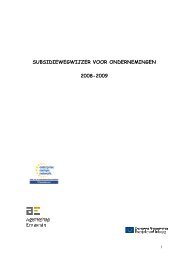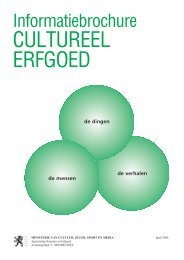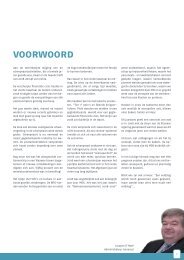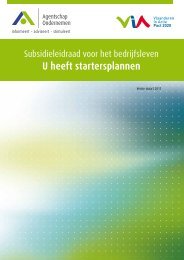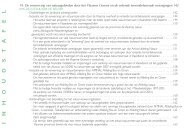Acknowledgements Book of abstracts - Publicaties - Vlaanderen.be
Acknowledgements Book of abstracts - Publicaties - Vlaanderen.be
Acknowledgements Book of abstracts - Publicaties - Vlaanderen.be
Create successful ePaper yourself
Turn your PDF publications into a flip-book with our unique Google optimized e-Paper software.
Marie Haskell presents Poster 32 during the poster sessions in the Aula.<br />
Session theme 4: Assessing health status <strong>of</strong> groups <strong>of</strong> animals in relation to welfare<br />
104<br />
Poster 32<br />
QUALITY AND RELIABILITY OF FARMER’S RECORDS OF HEALTH IN<br />
ORGANIC AND NON-ORGANIC DAIRY COW HERDS IN GREAT<br />
BRITAIN<br />
M.J. Haskell, M. Jack, F.M. Langford, L. Sherwood, A.B. Lawrence, K.M.D. Rutherford<br />
Sustainable Livestock Systems Group, Scottish Agricultural College, West Mains Road, Edinburgh EH9 3JG,<br />
UK<br />
The records that farmers make on the ocurrence and treatment <strong>of</strong> disease in individual animals are<br />
<strong>of</strong>ten used as part <strong>of</strong> welfare assessment schemes. However, we need to determine whether farmerproduced<br />
health records are an accurate representation <strong>of</strong> levels <strong>of</strong> disease on the farm. As part <strong>of</strong> a<br />
study comparing the health and welfare <strong>of</strong> cows on forty organic and forty non-organic farms in<br />
Great Britain, farmer health records were collected for a standardised year (2004).<br />
Thirty-four organic and thirty-three non-organic farms had health records available for copying.<br />
The health records proved to <strong>be</strong> very variable in the detail and consistency <strong>of</strong> the information<br />
recorded. Based on the amount <strong>of</strong> detail provided, the records were rated from good to poor. For<br />
organic farms, 5 were rated as good, 28 as fair and 1 as poor. For the non-organic farms this was 5,<br />
20 and 8 respectively. The num<strong>be</strong>r <strong>of</strong> cases <strong>of</strong> mastitis and the num<strong>be</strong>r <strong>of</strong> repeated cases <strong>of</strong> mastitis<br />
were calculated using good and fair farm records. The results showed that there were more<br />
treatments for mastitis made on non-organic farms than on organic farms (t44=-3.87, p0.05). No effect <strong>of</strong> any <strong>of</strong> the farm management variables<br />
fitted could <strong>be</strong> detected.<br />
The national regulations stipulate that farmers must record antibiotic use, and it appears that many<br />
limit their recording to this type <strong>of</strong> treatment. Other treatments, such as alternative or homeopathic<br />
treatments for mastitis or remedial foot-trimming for lameness are not recorded consistently across<br />
farms.<br />
We conclude that, in general, dairy farmers’ health records in the UK do not always provide a<br />
reliable estimate <strong>of</strong> disease levels.<br />
Contact information: Marie Haskell or email marie.haskell@sac.ac.uk<br />
Complete address: Sustainable Livestock Systems Group, Scottish Agricultural College, West Mains<br />
Road, Edinburgh EH9 3JG, UK<br />
Species: Dairy cattle









